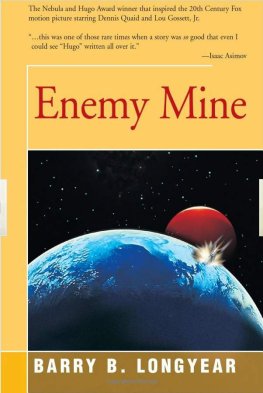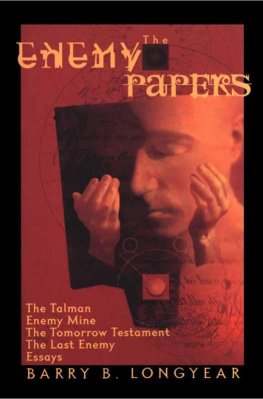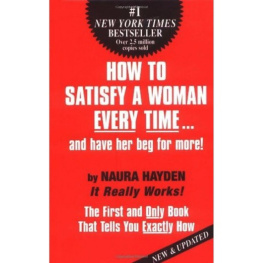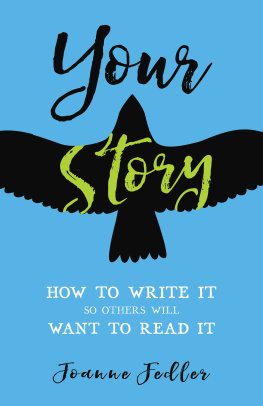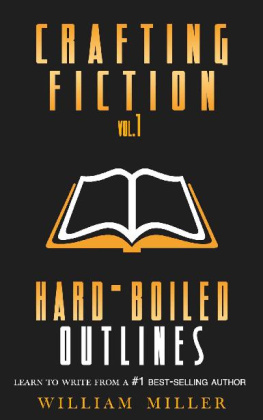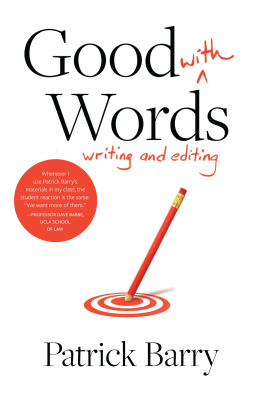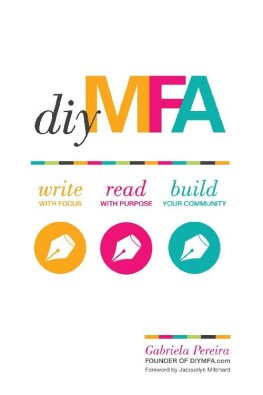Writing the best stories of which you are capable...
Barry B. Longyear's
THE WRITE STUFF
Enchanteds
Enchanteds Publishing
PO Box 100, New Sharon ME 04955
www.Enchanteds.net
Enchanteds edition copyright 2011 by Barry B. Longyear, all rights reserved including the right to reproduce this work or portions thereof in any form whatsoever. For information write: Barry B. Longyear, PO Box 100, New Sharon ME 04955.
The Write Stuff is based on the writing workshops, seminars, and the online writing course of the same name, copyright 2002-2006 by Barry B. Longyear.
Manufactured in the United States of America
To those who take words
And through them share all life adventures,
The possible and especially the impossible;
To the writers.
CONTENTS
Introduction
The Write Stuff was originally intended to accompany my Science-Fiction Writers Workshop-I (Owlswick Press, 1980), becoming the II in that series. The quarter century that passed between the publication of SFWW-I and the beginning installment of my online writing seminar titled The Write Stuff altered substantially what this work eventually became. If you approach writing the way I do, you are constantly learning, refining such things as methods and approaches, and exploring and experimenting with different subjects, characters, fields, and genres. I have learned a lot about writing since 1980 , which meant that a title as narrow as Science-Fiction Writers Workshop-II could no longer encompass the scope of the resultant work.
The original online writing seminar was intended to be a means by which writers willing to put in the work could remove the blocks and develop the skills enabling them to write the best stories of which they are capabletheir own stories. This encompasses the entire world of fiction as well as certain non-fiction genres. It was written over the course of many months and done during a time when I was struggling through a series of severe health problems that ruthlessly limited me and made me wonder at times if I would be around long enough to finish all seven parts. The original men and women who signed up for the online seminar were for the most part a patient and dedicated lot who awaited the parts, did the work, and let me know where I needed to do some more work of my own. From them, and from Stan Schmidt, editor of Analog, and Gordon Van Gelder, editor of Fantasy & Science Fiction, I received much useful feedback concerning this material, a great deal of which has been incorporated in this edition.
The entire course has been tightened up and simplified, eliminating much of the repetition inadvertently included in my original fevered composition. The object is unchanged: empowering you to find and write the best stories of which you are capable. The course is still as much work as the original version, but if putting out effort to accomplish your writing goals is beyond your level of commitment, you would be well advised to look into some other occupation. Writing is many thingsintellectual feast, healing fantasy, chilling adventure, heroic contest, horrifying mystery, thrilling romance, enlightening self-discovery, and much more. All of it, however, is the result of work, much of it tedious and lonely: learning the craft, learning the language, doing the research, polishing your skills, working out how to get out of your own way, and practice, practice, practice.
Let's get to work.
PART I: Finding Your Stories
1. The Wrong Stuff
The first thing to know about the write stuff is to avoid the wrong stuff. Aspiring writers and seasoned pros alike are drawn to the wrong stuff like moths to a lit fuse. Desperate for publication, notice, and grocery money, we are wrong stuff magnets eagerly chasing down unproductive paths, loading ourselves up with time-and-energy burners, filling ourselves with karma-corroding choices as though a diet packed with enough catastrophic selections might build up an immunity to failure. And the really frightening thing is that each of the crippling choices we make in the fruitless pursuit of a writing career all look like the right thing to do.
We're going to look at wrong stuff first for the same reason that instructional courses in fungus appreciation begin by identifying the varieties of mushrooms that will kill you. If you're dead, you see, there's not much point in taking the rest of the course. If you are nibbling some of those career killers right now, this will be your opportunity to stop. Similarly, if your original choices in approaching a writing career take all of the creativity, fulfillment, meaning, potential, communication, importance, and fun out of it, you'd be better off taking a well paying job that you really hate. The bars, back alleys, and graveyards are filled with published writers who made money at it, cranked out yards of middling to good writing, and hated every minute of it. And that constituency is minuscule compared to the endless multitudes who wanted to write but were ground into nothingness by misdirection, frustration, paralysis, and self-sabotage.
Sounds like fun, doesn't it? So, let's get started identifying the fungus that will kill your writing.
I want to write like So-and-so. This is the trap that catches the greatest majority of those suddenly inspired to write. Perhaps you've just finished reading J. R. R. Tolkien, Alex Haley, Guy Sajer, James Baldwin, Harry Harrison, Jr., or Agatha Christie and a tiny little spark ignites in the back of your brain. You don't poke at it or examine itit might extinguish. But it seems to be drawing you toward blank screens and keyboards, and many of you interpret this feeling as a "need to write." Time after time we have uncovered such in workshops and writing seminars, and when they are forced to examine their motivations for writing, much of it boils down to "I really want to write like So-and-so."
It's actually a complement to the author. "I really liked that book. That author really spoke to me." Why is this a problem? Aside from the troubling fact that So-and-so is already writing So-and-so's stories, even if you did rip off some characters and ape a certain style, setting, and structure, about the best you could do is to turn out mediocre similarities. So-and-so's writing is appealing to you, probably, because that author was writing his or her own storiesnot someone else's. Even if you do avoid the legal and critical entanglements, writing to emulate another author completely misses the creative point of writing. You would be trying to write stories you'd like reading. You wouldnt be writing the stories you need to write: Your stories. At the end, even if you do manage to drive yourself into publication and financial success writing someone else's stuff, which almost never happens, you'll be a failure as a writer, and you'll know it.
Whatever You Want. One thing sillier than modeling your writing after a writer you like is modeling your writing after writers you don't like. Who would do a moronic thing like that? Hundreds of thousands of aspiring writers, that's who.
"Guideline Wisdom." You've seen it printed in writing instructional texts, heard said it in creative writing courses, and pondered it when it appeared in magazine and publishing house submission guidelines: "Read several issues of our magazine (or check out our publishing line at the local bookstore), see what we're buying, go forth and do likewise."
Of course, they always throw in the hook: "It's your best chance of appearing in our publication." In other words, go model your writing after writers someone else has picked. Well, it's one thing when the writer is choosing not to write his or her own stories, but when an editor recommends itI mean, who are we to fly in the face of editorial guidelines?
Next page


